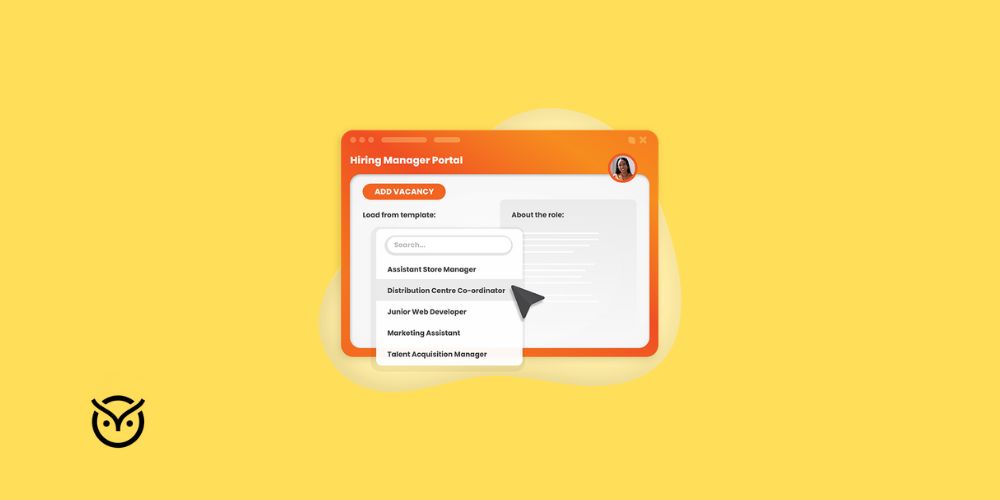
TL;DR
- The hiring manager role is about skill data rather than guesswork.
- They choose who best fits the job and team.
- They define role needs, review candidates, and make final selections.
- Assessment platforms help compare skills fairly and reduce bias.
- Technology handles resume volume and speeds hiring steps.
- Future hiring blends AI insights with human judgment.
Picture a hiring manager sitting in front of a long list of resumes. Names blur together. Skills sound similar. Every candidate says they are hardworking and passionate. Yet the company needs someone who can actually do the job. Hiring Manager Role in Talent and Assessment Platforms becomes essential here because guesswork can lead to wrong hires and wasted time.
Many companies now use talent assessment platforms to cut through the noise and give hiring managers real insight into skills, behaviours, and job fit. In this blog, you will learn what hiring managers do, how assessments support them, and how technology makes hiring smoother.
Understanding the Role of a Hiring Manager
A hiring manager is the person who makes the final hiring decision. They understand the job, the team environment, and what success looks like for the new hire. More than reviewing resumes, the focus is on how a candidate collaborates, learns, solves challenges, and stays motivated in the role.
People sometimes ask what a hiring manager is or who the hiring manager is in a company. They are usually the team leader or department head who will work directly with the new employee. HR supports the process, but the hiring manager guides it from start to finish.
What Does a Hiring Manager Do During the Recruitment Process?
A hiring manager works with HR to define the role. They explain the needed skills and what success looks like. They help write the job description. Then they review resumes. People often search for what a hiring manager does or what hiring managers do because the role can look invisible from the outside.
Hiring managers also take part in interviews. They ask questions about past projects, work style, and job knowledge. They may assign small tasks or work samples. When candidates move through steps, you may see the phrase, “what does hiring manager review mean?” It means the hiring manager is checking whether the candidate fits what the team needs before moving them forward.
The Connection Between Hiring Managers and Talent Assessment Platforms
Talent assessment platforms help hiring managers make decisions based on skills and behaviours rather than guesswork. These platforms can test problem-solving, communication, logical thinking, or job-specific tasks. This leads to more confident decisions.
When someone searches for what a hiring manager is, the answer today includes knowing how to use digital tools to evaluate talent. Modern hiring is no longer just interviews and resumes. Data and insight help lift the quality of hiring decisions.
How Talent Assessment Platforms Empower Hiring Managers
The Hiring Manager Role in Talent and Assessment Platforms is about clarity. Instead of relying on gut feeling, hiring managers see tangible evidence of performance. This reduces bias and helps them feel sure about their final decision.
Today, part of understanding what a hiring manager is includes knowing how to use digital tools and AI talent assessment tools to evaluate talent.
Clear comparison. Candidates are scored using the same criteria, which makes results fairer, easier to read, and faster to shortlist. Less time is spent reading resume after resume.
Better job fit. Platforms evaluate skills and behaviour, which help hiring managers see how someone might work in real situations.
A SHRM report shows that skills-based hiring is increasing as companies seek more accurate ways to evaluate ability.
Hiring managers can also review real-time hiring analytics to track how their decisions are improving over time.
The Hiring Manager Role in Talent and Assessment Platforms becomes more confident when decisions are shaped by data, not assumptions. This helps companies hire faster, reduce errors and improve employee retention over time.
Criteria Corp found that using assessments can reduce time-to-hire by up to 53% in overall time-to-hire and 75% in time spent on interviews.
Challenges Hiring Managers Face and How Technology Solves Them
Too Many Resumes and Similar Profiles
Hiring managers see a high number of applications for each role. A lot of resumes look alike. Many candidates use the same phrases for strengths. It becomes hard to understand who truly fits the job. The Hiring Manager Role in Talent and Assessment Platforms becomes important here because these platforms help filter candidates based on skill and relevance, not just resume writing style.
Interviews Can Feel Unclear
Interviews can depend on confidence, speaking style and personality. A candidate who speaks well may not be the best at the actual job. A quiet candidate might have strong skill but does not shine in conversation. This makes hiring decisions feel unstable. Hiring managers need something more concrete to rely on when judging job readiness.
Pressure to Fill Roles Fast
Teams rely on open roles to be filled. When a role stays vacant for too long, workloads increase and productivity slows. This creates stress for the hiring manager. They need to move quickly but also avoid mistakes. A wrong hire means repeating the same process again.
How Technology Helps Solve These Problems
Talent assessment platforms give hiring managers more clarity at each step.
Time. Automated sorting reduces hours spent reviewing resumes.
Bias. Every candidate completes the same tasks which support fair scoring.
Proof. Work samples and skills tests show real ability instead of guesses.
In many cases, the effectiveness of these steps also depends on how well a company manages talent sourcing because sourcing shapes the quality of candidates entering the pipeline in the first place.
Stronger Confidence and Better Candidate Experience
The Hiring Manager Role in Talent and Assessment Platforms becomes stronger when decisions are based on clear evidence. Hiring managers are confident in their choices. Candidates feel the process is fair because they are evaluated on fundamental skills rather than just personality or presentation. This improves trust and supports long-term retention. Insights from the best talent assessment tools can also show how different evaluation methods shape fairness and fit in real hiring environments.
Future of Hiring Manager’s Role in a Tech-Driven Hiring Landscape
Hiring managers will become more like talent analysts. Instead of focusing only on conversations, they will use reports and skill data to shape hiring decisions. The Hiring Manager Role in Talent and Assessment Platforms will continue to expand as more companies adopt skill-first hiring.
AI may support resume screening and suggest top candidates. Assessment tools may predict future job performance. Hiring managers will still make final decisions, but with better information in their hands.
Human judgment remains essential. Technology guides but does not replace empathy, teamwork, or a sense of leadership. The best hiring managers will blend data with real human understanding. They decide who will grow with the team, not just who scores high on a test.
Conclusion
The Hiring Manager Role in Talent and Assessment Platforms strengthens hiring quality. It reduces guesswork and supports fair, data-backed decisions. Companies benefit from better talent. Candidates experience a more equitable process. And hiring managers feel more confident about the people they choose.
FAQs
Quick answers to help hiring teams and candidates understand how decisions are made and who leads the process.
Who is the hiring manager in a company?
The hiring manager is the person who will lead or supervise the new employee. They guide the hiring decision because they know the job’s work needs and goals.
What does a hiring manager review mean?
This means the hiring manager is reviewing the candidate’s profile or assessment results to decide whether to move the candidate forward in the hiring process.
What do hiring managers actually do day to day?
They review resumes, guide interviews, evaluate skill tests, and select the person who best fits the role. They also work with HR to shape the job and onboarding experience.
How is a hiring manager different from HR?
HR manages process, tools, and policy. The hiring manager decides who is the right person for the job because they understand the work and team needs directly.




